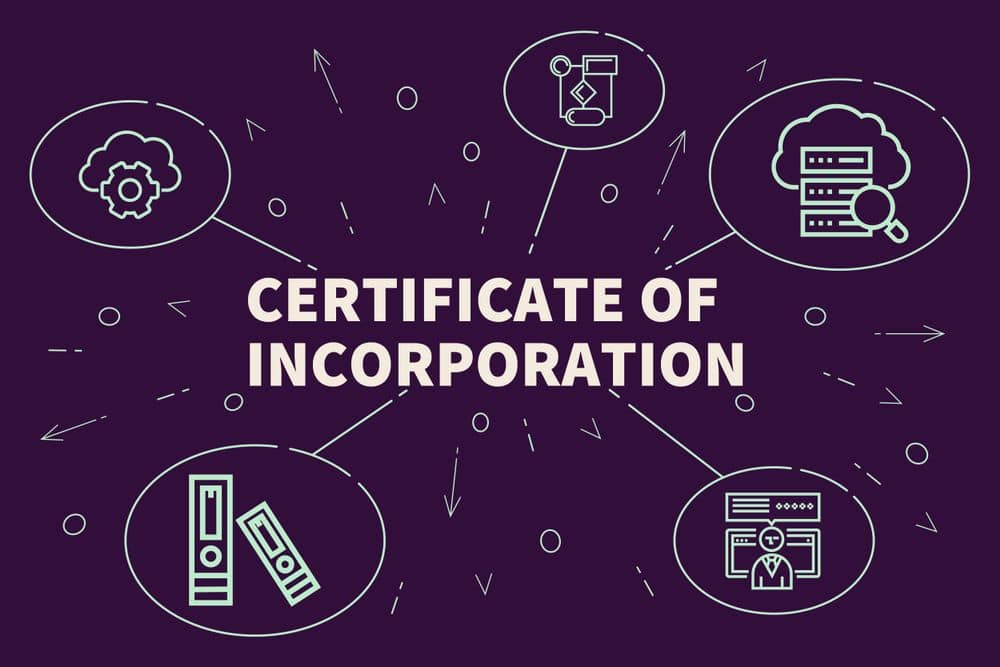Incorporating a business in Canada has various pros and cons. For entrepreneurs looking to start or expand their businesses, understanding these advantages and disadvantages is essential for making informed decisions. Incorporation can help protect personal assets from liabilities associated with the business, provide access to additional capital through investors, help attract employees with stock options and other benefits, and more. However, there are also potential drawbacks, such as increased paperwork requirements, higher maintenance costs than an unincorporated business, and potentially more restrictions on ownership structure. In this blog post, we will explore the advantages and disadvantages of incorporating a business in Canada so that you can make an informed decision about what’s best for your particular situation.

Advantages of Incorporating
Incorporating a business in Canada can provide numerous benefits to entrepreneurs. Let’s explore how you can leverage them when starting or expanding your business here in Canada.
Tax Deferral
The business income earned through a sole proprietorship is taxed directly in the hands of the individual owner on their personal tax return. In contrast, a corporation enjoys preferential tax treatment if it is controlled by a Canadian resident, which is considered a Canadian Controlled Private Corporation (CCPC).
This status qualifies the corporation for the small business deduction (SBD), providing a lower corporate income tax rate up to $500,000 of taxable revenue earned annually from an active business carried on in Canada.
Businesses that qualify for the small business deduction benefit from a substantial tax reduction, with corporate tax rates ranging from 9 to 13% on their first $500,000 taxable income. The exact percentages vary depending on the province the company is based. In comparison, the personal marginal tax rates could reach as high as 54.80% based on residency and income amount.
Since corporate tax rates are significantly lower when compared to personal income tax rates, this presents an incredible opportunity for entrepreneurs to save or defer taxes by running their ventures through a corporation.
Let’s look at an example of how this works:
Suppose Justin owns an e-commerce store which produces $200,000 per year in business income. Operating the business as a sole proprietorship would mean that Justin would have to personally pay income tax on the entirety of his income, resulting in approximately $73,000 owed to the CRA. However, he only needs $85,000 annually to meet his lifestyle needs.
By incorporating the business, Justin has the flexibility to only take out $85,000 from the corporation in the current year and pay a total of around $35,000 in tax ($24,000 corporate tax, $11,000 personal). This means that he is able to save $50,000 in taxes for the time being.
This provides him with the opportunity to use these deferred tax dollars to grow his business and plan out personal income to take advantage of lower marginal tax rates. The real benefits come from using this saved money for investments that will eventually benefit Justin’s bottom line. It is crucial, however, to remember that he will have to pay personal tax on the income when it is eventually withdrawn from the corporation.
Overall, corporate tax rates in Canada provide small businesses with an opportunity to defer or save taxes. This can be done by taking advantage of flexible income options and planning personal income to take advantage of lower marginal tax rates. Ultimately, it allows owners of corporations to use their deferred tax dollars to invest and grow their businesses in the long run.
Lifetime Capital Gains Exemption Claim
Incorporating a small business comes with many tax benefits, one of the most notable being the ability to claim the $971,190 Lifetime Capital Gains Exemption (LCGE) when selling qualified small business shares. To be eligible for the exemption, however, some specific requirements must be met, such as holding the shares for two years before sale and ensuring at least 90% of the assets are used in an active business carried on in Canada. Additionally, the capital gains exemption may be reduced by any Cumulative Net Investment Losses (“CNIL”) balance that a taxpayer holds. It is important to understand these rules and requirements before incorporating a small business or selling qualified small business shares in order to take full tax advantage of the $971,190 capital gains exemption.
The Lifetime Capital Gains Exemption (LCGE) offers an incredible tax savings opportunity for small business owners and entrepreneurs in Canada. However, it is accompanied by its own set of intricacies. Let’s look at an example of how this works:
Suppose Maria operates a consulting firm she started from the ground up, which has since grown to generate an annual revenue of $900,000. Now wanting to retire, Maria finds a buyer willing to purchase her firm for $950,000. This means that there is a gain of $950,000 on the sale since the initial share subscription cost was $0 or a nominal amount.
If Maria operated the consulting firm as a sole proprietorship, she would be required to pay tax on that $950,000 gain. Specifically, she’d have to pay approximately $215,000 in taxes.
Fortunately for Maria, if she had set up her business as a corporation or use a holding company to purify the assets and qualifies for the Lifetime Capital Gains Exemption, the entire $950,000 gain would be exempt from tax. This means Maria would pay no taxes on the sale and keep the full amount!
Income Splitting
Income splitting was a popular tax strategy prior to 2018, used by individuals who incorporated the business to effectively distribute their income between spouses and other family members to reduce their overall tax burden. This was accomplished using dividends taxed at a lower tax rate for the lower-income earning spouse or family member.
However, in 2018 the Canadian government introduced new regulations known as the “Tax on Split Income” (TOSI), which have drastically increased the requirement for business owners to utilize this strategy. The tax rules are created to limit the benefit of income splitting through private companies by applying TOSI when an adult family member receives income from a business if they did not make a sufficient amount of contribution to the company. The simplest way to satisfy this requirement is by working in the business for an average of 20 hours per week.
While income splitting can still provide significant tax benefits for a corporation, it is vital to fully understand the TOSI rules before implementing this strategy to avoid any adverse tax consequences.
Succession Planning
Succession planning with a corporate structure offers a unique advantage that other types of business don’t offer: the ability to plan for the future beyond the life of its owners. Unlike partnerships or sole proprietorships, a corporation is considered an independent, legal entity under Canadian law and will continue to exist even if its owner passes away. In contrast, a sole proprietorship will cease to exist when the owner dies. Therefore, an incorporated business allows for more efficient transfers of assets to heirs and for the business owner to plan for the future beyond their own life.
Limited Personal Liability Protection
The incorporation of a business provides its shareholders with the protection of limited liability through being a separate legal entity, which is the primary non-tax incentive to incorporate. This means the creditors of the company cannot pursue the personal assets or wealth of a shareholder if something goes wrong in the business. This limited liability provides greater protection for individuals who conduct business activities through a corporation.
Although shareholders have the advantage of limited personal liability, it is important to note that directors of a corporation are subject to various liabilities and should be aware of the potential risks they face. These include failure to remit payroll source deductions and GST/HST outstanding balances. They should make sure they have director’s liability insurance in place to protect them if something goes wrong with the business. In addition, passive directors who may not be actively involved in running the company can still be held accountable for certain liabilities. It is vital for these directors to understand what liabilities they could face and take necessary steps to ensure their protection.
Enhanced Access to Capital
Access to capital and grants has become more accessible to an incorporated business. It can provide credibility to a business when applying for financing to raise money or negotiating with suppliers, making these processes more manageable and smoother.
Venture capital firms and angel investors may also be more likely to contribute to your business if you are incorporated. Additionally, there are a number of loan and grant programs offered by the Canadian government which are exclusive to incorporated businesses.

Disadvantages of Incorporating
Incorporating a business in Canada can be an attractive option based on the advantages discussed above. However, there are also some potential disadvantages to consider before incorporating. Below we will discuss the four key disadvantages of incorporating a business in Canada in more detail.
Accessibility of Losses
For businesses not making a profit, incorporating from a tax perspective may not be the wisest decision, even if it would protect the owners from certain liabilities. Unlike sole proprietor business, losses incurred in an incorporated company cannot be used to offset against the owner’s personal income. This means any losses sustained by the corporation are essentially “trapped” within the company and cannot be used to reduce taxes until it becomes profitable in future.
It is important to note that a corporation with losses in the current fiscal year can recoup some of the tax it had previously paid by using the ‘carry-back’ option. This allows the company to offset their current losses against taxable profits up to three years prior. Alternatively, the company can carry forward its losses and use them to offset against taxable profits in any of the next twenty years. This means it would not have to pay taxes on these earnings until it makes profits again in the future.
Incorporation and Setup Costs
Incorporating a business can be a daunting process, with many setup costs and considerations to take into account. For starters, enlisting the help of a legal professional or an accountant is essential to ensure that you have properly established your corporate entity.
If you are running a business with other partners, it is important to set up a shareholder agreement that can be used as a fallback option in case of any disagreement between the shareholders. To ensure such an arrangement is in place, it is recommended to hire a professional lawyer who will not only provide sound advice on the subject matter but also draft the agreement itself. The additional cost is well worth the assurance that you are protecting yourself and your partners from any potential future disputes.
When deciding whether or not to incorporate, it is critical to weigh the potential benefits against the costs to set up. With careful planning, incorporating a business can offer great financial benefits in the long run, but it is imperative to be prepared for the costs and complexities associated with it.
Annual and Ongoing Costs
Annual and ongoing accountant costs must be taken into consideration when calculating the cost of incorporating a business in Canada. This includes filing a legal annual return to remain in compliance with provincial corporate laws, as well as completing and submitting an annual corporate tax return (T2) and potentially obtaining a Notice to Reader financial statement each year. Other yearly costs may include tax filing obligations such as GST/HST return, T4 and T5 information return, depending on the structure and activities of the corporation.
Increased Complexity
Incorporating a business can be a complex process, requiring extensive record-keeping with double-entry accounting to ensure it is compliant with the Canada Revenue Agency. This means it is more labour-intensive than simply operating as a sole proprietor, since only an income statement needs to be filed on your sole proprietor’s personal tax return. When incorporating, in addition to the income statement, your business must also submit a balance sheet showing the assets, liabilities, and equity held by the corporation at a given time.
Despite these complexities, operating a corporation can be managed with discipline and planning. It is important to seek professional guidance to ensure you are well-informed about what will be involved in this process. Doing so will set you up for success and help ensure your business runs smoothly.

Should I Incorporate My Business?
Should you decide to incorporate your business? It’s a question that many entrepreneurs face, and the answer may sometimes be more complex than it seems. While incorporating your business may seem the most logical route to take, this isn’t always the best option for everyone.
When it comes to deciding how to structure your company, there are many factors to consider. Incorporating your business can provide many tax advantages that we have discussed above. But not every situation is the same, and there may be times when it’s a better choice to operate as a sole proprietor due to some of the disadvantages previously mentioned.
To help clarify and understand when incorporation is right, we’ll walk through some examples and provide overall recommendations under each scenario.
Worried About Potential Liability?
When business owners decide to incorporate their business in Canada, one of the foremost reasons for doing so is to protect themselves from potential liabilities. By incorporating your business, only the assets held within the company would be exposed to creditors – personal assets are not vulnerable. This provides an extra layer of protection and security, as well as peace of mind. However, it is critical to remember that there are situations in which directors of incorporated businesses can be held personally liable for the financial obligations of the company, such as outstanding employee salaries and wages, payroll remittances owed to the CRA, or unremitted GST/HST that the corporation has already collected. Additionally, banks and other creditors often require a personal guarantee for early-stage businesses, meaning that the business owner would still be liable for the debts.
Overall, if you are worried about potential liability, incorporating your business would be a good decision. However, it is prudent to consult with a lawyer before taking this step to ensure that liability concerns are adequately addressed.
Creating a Business to be Sold in the Future
Incorporation is a critical step when you are looking to build a business that you plan on eventually selling. Operating a small business that is a Canadian Controlled Private Corporation (CCPC) enables the sale of shares at a capital gains tax of $971,190 without having to pay tax due to the Lifetime Capital Gains Exemption (LCGE). To take tax advantage of this exemption, you must meet the asset test, basic asset test, and holding period test.
In simple terms, the asset test means that at the time of business sale, at least 90% of the company assets must be employed in an active business rather than passive or investment assets. For the basic asset test, it requires at least 50% (or half) of the company’s assets to be allocated to active business operations and not stored in passive or investment assets for the entirety of the 24 months preceding the business sale. And for the holding period test, the business owner or spouse must have legal possession of their shares for at least the same 24-month period before the date of sale.
If planned properly, the three tests above can be met with certainty so that you can take tax advantages of the LCGE.
Overall, if you plan to sell your business in the future, incorporating can result in significant tax savings.
Business Profits Exceed Personal Requirement
Incorporation can be a great way to take advantage of tax deferral and savings in situations when your business is bringing in more money than you need for day-to-day living expenses. By keeping extra cash within the company, you are eligible for lower corporate taxes rather than higher personal income tax rates, which will allow you to defer tax payments until they are paid out as a salary or dividends. This can have a combined positive effect on the overall financial picture for you and your business.
Overall, incorporating can save or defer taxes if the business earnings surpass the personal requirement for living expenses and retirement savings.
Business is Incurring Losses
In the beginning stages of a business, it is not uncommon to operate at a loss for multiple years before they take off and become successful. When this happens, there are different implications depending on whether the business is incorporated. If the business is run as a sole proprietorship, the owner can use the losses incurred to reduce their personal taxes. However, if the business is incorporated, then the losses can only be used to offset future corporate income. In this case, it may be more beneficial for the business owner to delay or avoid incorporation until the business starts to make a profit. This way, they can maximize any potential tax savings associated with the losses.
Ultimately, the decision on when to incorporate a business should be based on a thorough analysis of the company’s profitability. However, if a business expects losses in the beginning, it can make sense to delay or avoid incorporation until profits are realized.
Overall, the business should not incorporate if it is incurring a loss. This ensures that potential tax savings from those initial losses are maximized.

Other Frequently Asked Questions for Incorporating a Business
We’ve been asked a number of other questions regarding incorporating a business in Canada, so we’ll do our best to answer as many questions as possible here.
Should I incorporate myself?
The question of whether or not to incorporate a business yourself can be a complex and difficult decision. Many factors must be taken into account, including the nature of the business, how much income it generates, personal tax considerations, potential legal liability, and the business’s goals.
Incorporating is generally a good decision if you are planning to build a business with the intention of eventually selling it, your business generates more income than you need to spend personally, or you have legal concerns about your business operation.
On the other hand, incorporating may not be advantageous if you expect the business to experience losses before any profits are generated or if the business profit is just sufficient to cover personal living expenses.
When to incorporate?
When it comes to incorporating your business, one of the main questions you may have is when you should do it. As a rule of thumb, when your business begins to make more money than you can utilize in a single year, this is usually a sign that incorporating would be beneficial for tax purposes. However, it’s crucial to take into account a number of factors when deciding whether or not to incorporate. It would be best to consult a professional accountant to determine if the benefits outweigh the costs of incorporation.
How to incorporate a business in Canada?
Incorporating a business in Canada requires careful planning and preparation. Depending on the nature of your business and the client base you serve, you may choose to incorporate either provincially or federally.
You can choose to incorporate yourself, or use an accountant or lawyer, depending on your company’s ownership and share structure.
You will also need to decide if you want a named or a numbered company before the articles of incorporation can be prepared. If you choose a numbered company for simplicity, you still have the option to register an operating name with the provincial government at a later date.
Lastly, you must provide the corporation’s business address and indicate the board of directors before submitting your application and paying the fee. It is best to seek professional advice if you have any doubts about incorporating in Canada.
How much does it cost to incorporate in Canada?
Entrepreneurs have the option to register their business and protect its name on a larger, federal scale rather than just provincial. This gives them more extensive rights to conduct business throughout Canada and a wider geographical range of possible headquarters locations. In order to incorporate federally, at least 25% of the company’s directors must be Canadian citizens or permanent residents, and the basic fee for federal incorporation starts at $200.
Depending on your company’s ownership structure and share restrictions, you may choose to incorporate yourself or enlist the help of an accountant or lawyer.
For those considering incorporating federally, it’s important to remember that you will still need to register your business in the province where it is located. You must also file a legal annual return with Corporations Canada, which costs $12 per filing.
How to incorporate a business in Ontario?
To incorporate a business in Ontario, there are certain steps that must be taken. First and foremost, Articles of Incorporation must be filed with the Ontario Business Corporations Act (OBCA). This form, known as Form 1, should include both the corporation’s name and the names of its directors, shareholders, and the effective date. In addition, a registered office is required to be in Ontario, and the address must be included on all corporate documents.
The entire process typically takes three to five business days to complete, depending upon the complexity of your business structure. Once you’ve filed all of your documents with the Ministry of Ontario, you’ll receive a Certificate of Incorporation from the government within a few business days. This certificate officially marks the start of your new corporation, and you can then begin to conduct business in Ontario.
It’s important to note that incorporation in Ontario is subject to annual filings with the province and must follow all relevant laws and regulations, including those pertaining to taxes and corporate records. Additionally, you may need to register for additional licenses and permits depending on the type of business you are operating.
How much does it cost to incorporate in Ontario?
Incorporating a business in Ontario can be a relatively straightforward process, but there are associated costs that must be taken into account. Depending on the method chosen to file the incorporation materials, the costs can range anywhere from $300 to $360. Incorporation materials must be submitted to officially register a company and establish it as a legal entity in the province.
If you intend to incorporate a business by yourself, the cost is $300 and includes filing fees and applicable taxes. If you opt to send your application by mail, it will cost slightly more. For those who prefer to submit the paperwork in person, they can expect to pay $360.
Depending on your company’s ownership structure and limitations on the shares, you may either opt to incorporate yourself or seek advice from a lawyer or accountant.
What are the benefits of incorporating in Alberta?
Incorporating in Alberta can be a very profitable decision for business owners, as the tax rates across the province are some of the lowest in Canada. This means that businesses who choose to incorporate in Alberta can enjoy exemption from provincial sales tax, as well as lower corporate income tax than those observed in other provinces.
In addition, Alberta’s lower corporate tax rate mean businesses can save money in the long term and make their bottom lines more profitable. This financial boon can be especially beneficial for small companies or those who are just starting out, as they will be able to maximize their profits without facing excessive tax liabilities. Furthermore, Alberta’s Department of Business and Economic Development offers incentives for businesses that choose to incorporate in the province, such as investment grants, tax credits and funding opportunities.
What are the benefits of incorporating in BC?
Incorporating your business in British Columbia can provide you with numerous tax benefits, which may help increase the profitability of your venture. Here are some potential tax benefits you may be able to take advantage of when incorporating in British Columbia:
- Tax Credits: There are several provincial and federal government programs that offer tax credits and deductions that you may be eligible for when incorporating in British Columbia. These include the Small Business Venture Capital Tax Credit, the Scientific Research and Experimental Development Tax Credit, and the BC Mining Flow-Through Share Tax Credit.
- Low Corporate Income Tax: British Columbia has one of Canada’s lowest corporate income tax rates, which is currently set at 11%. This rate applies to all active businesses up to a taxable income of $500,000.
- Investment Incentives: The province of British Columbia offers various incentives to help attract new business investments and encourage existing industries to expand their operations within the province. These incentives are designed to increase employment opportunities as well as investment into research and development within British Columbia.
By taking full advantage of these incentives available when incorporating in British Columbia, you would be able to maximize your business’s profitability and reduce taxes payable.
What is the cost to incorporate in BC?
Incorporating a business in British Columbia comes with associated costs. Depending on the exact processes and documents involved, the filing fees for incorporating a business by yourself in BC range from $350 to $400. Doing it yourself also comes with its own set of risks and potential for costly mistakes that could be avoided by working with a legal professional. A lawyer who specializes in BC’s laws and regulations could help ensure success and save you from having to pay costly fees down the road.
Finally, there are other administrative costs associated with incorporating a business in BC that may be required by law. These costs include registering your company’s name, licensing any special services or products you intend to provide, and obtaining professional insurance coverage if necessary. All of these costs should be budgeted for when incorporating your business in BC.
We Can Help
When deciding to incorporate a business, it’s important to be aware of all the facets that could come into play. We understand that this can be an overwhelming process and are here to provide the guidance and support necessary to ensure your business venture is set up for success. Our team of experienced corporate accountants has the expertise and knowledge required to assist in the incorporation process, from start to finish.
